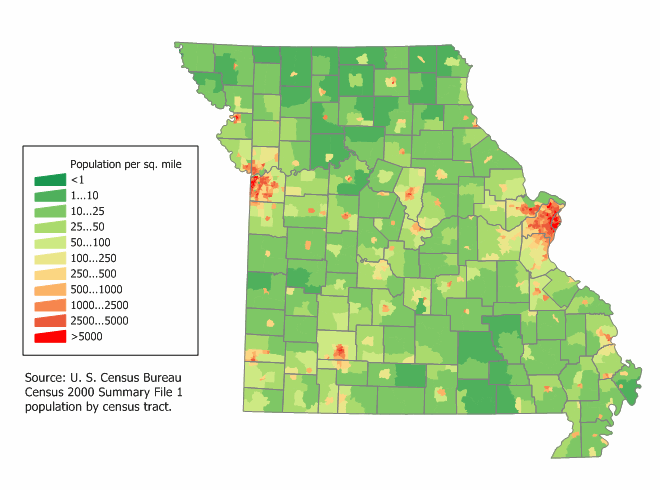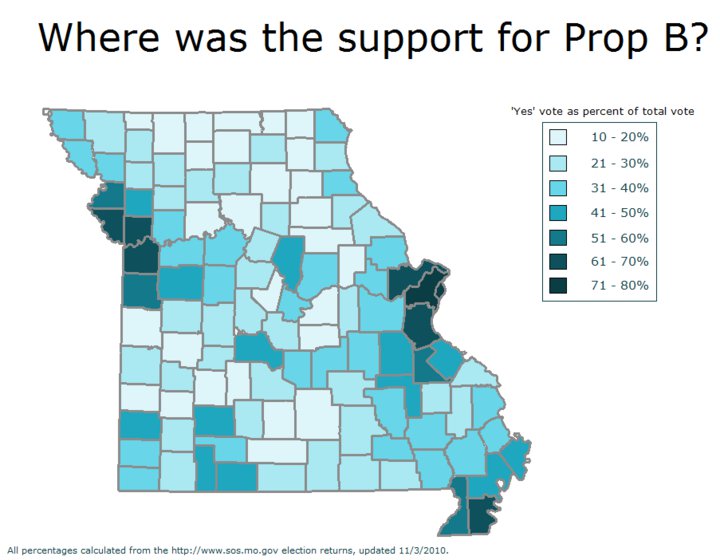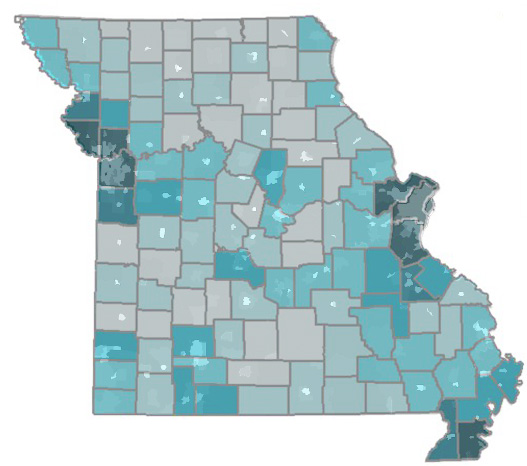Recovered from the Wayback Machine.
More bills have been introduced in the Missouri Legislature. Why yes, we must have few problems in Missouri if the state representatives primary concern is revoking regulations to prevent puppy mill cruelty.
SB 95 Modifies Proposition B to the following:
Under current law, the provisions of the Puppy Mill Cruelty Prevention Act apply only to commercial dog breeders with over 10 breeding females. This act makes the animal care standards applicable to anyone in the state who has more than 10 female dogs over 6 months of age.
Current law prohibits anyone from having more than 50 dogs when the purpose is to breed them and sell the resulting puppies. The act removes the purpose criteria and instead just prohibits anyone from having more than 50 dogs that are over 6 months of age.
The act modifies the title of the act by referring to it as the Puppy Cruelty Prevention Act, modifies the definition of “covered dog”, and removes the definition of “pet.”
Under current law, animal shelters are exempt from the requirements of the Puppy Mill Cruelty Prevention Act. This act removes that exemption.
This makes little sense, other than as a spiteful, petty jab at dog shelters in the state.
What Senator Brian Munzlinger (R, 18), who introduced this bill, doesn’t seem to realize is that there isn’t one dog shelter or rescue in Missouri that isn’t desperately trying to have less than 50 dogs. Every shelter and rescue would absolutely love to have fewer than 50 dogs.
In addition, public shelters can’t restrict the number of dogs they have: they’re mandated by county or town laws to take any and all dogs.
Both public and non-profit shelters incur expenses for every dog they take in. Unlike commercial breeders, rather than profit by the number of dogs they have, shelters lose money. For public shelters, this typically means more taxpayer money going to care for the dogs. However, if the public and non-profit shelters don’t take the dogs, they roam the street: homeless, potentially dangerous, and definitely suffering from cold, hunger, illness, and injury.
Perhaps someone needs to instruct the good Senator in basic economics and humanity. Or responsible legislation.
SB 113 Amends Proposition B
I had missed this one earlier. SB 113 modifies Proposition B as follows:
Current law prohibits anyone from having more than 50 dogs when the purpose is to breed them and sell the resulting puppies. The act removes this prohibition.
The act modifies many of the act’s definitions.
Under current law, anyone subject to the act’s provisions who violates the act commits the crime of puppy mill cruelty, which is a class C misdemeanor. The act gives breeders who are properly licensed a grace period of between 30 and 180 days in which to correct serious violations of the act before being charged with the crime. The act also requires the Department of Agriculture to conduct two follow-up inspections on any properly licensed breeder who is found to have committed a serious violation of the act. The department may revoke the commercial breeder’s license of a breeder who fails to correct a serious violation after the second inspection.
The act contains an emergency clause.
Of course, the problems with this amendment is that this actually adds a significant burden to an already overburdened team of inspectors. In addition, breeders are given 30 to 180 days to correct a serious violation.
Consider what a “serious violation” is? Sick and injured dogs not seen by a vet; dogs freezing in this cold weather; emaciated dogs; dehydrated dogs—if the person who owned the dogs wasn’t a breeder, they would be arrested and charged for animal abuse.
In addition, we will continue to have problems as long as people can own and breed hundreds of dogs at a time. Our shelters can’t continue caring for the dogs worn out or no longer useful for these breeders. And inspection reports show, time and again, that breeders cannot properly care for large numbers of dogs.
Then, if you dig deeper and look at the full text of the bill, you find that it completely removes every single Proposition B provision. Rather than state this upfront in the bill summary, the supporters “hide” what the bill really does in the text of the bill. Not particularly transparent or open. Some could even call such actions, deceitful.
HB 131 Repeal Proposition B and replace the text.
This bill would change the title of the new act, from “Puppy Mill Cruelty Prevention Act” to “Dog Breeder Cruelty Prevention Act”. I’m assuming the only reason why is the state representatives who are sponsoring this bill don’t like the term “puppy mill” —even though puppy mill is a common term, and has been legally defined.
That’s just semantics, though. What isn’t is what they did to the rest of Proposition B:
- Remove both the adequate shelter and veterinarian care provisions.
- Change the provisions so that the bill only applies if the breeder has more than 100 dogs
- Remove the section that would allow the dogs to rest between breeding cycles
- Remove the qualifications on food and water, so that water dishes can continue to have filth and algae, food doesn’t have to be wholesome
They did leave in the misdemeanor charges, but for what? The representatives have basically gutted the entire Proposition B bill, and left in only a few tattered, innocuous pieces. Is this the compromise that Representative Kelly spoke of, earlier in the month?
Algae. How could a person remove a provision that would prohibit algae from growing in water dishes? What kind of person, what kind of state representative, would protest this?
Evidently, the same state representatives who believe continued cruelty to dogs is acceptable.



